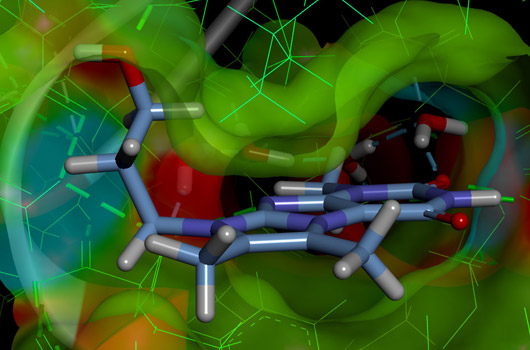
RNA Targeted Library
For the last several decades, progress in RNA investigations revealed earlier underestimated importance of RNA in normal and abnormal cellular processes. It is now clear that regulation of translation and transcription, protein and enzyme functions that have commonly been attributed to proteins are frequently in RNAs' competency.
The multitude of recent research articles devoted to the wide variety of diseases, including viral and bacterial infections, cancer and degenerative processes, emphasized the high potential of approaches targeted on the structure of particular RNA.



